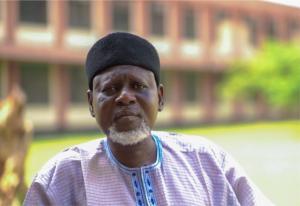Diabetes- negligence of the disease is very risky
Abuja, 11 November, 2021 - Abubakar Yabagi from Niger State believes negligence made him develop type two diabetes and poor health.
The 65-year-old civil servant and father of four further narrated that “I got diagnosed for Type two diabetes seven years ago when I was 57 years. It all started with frequent headache and I thought it was prevalent Malaria which I kept treating with no little or no improvement. After several months, my sight started deteriorating and that was when I decided to go and see a doctor”.
“I ended up in the hospital with high blood sugar, severe dehydration, fatigue and exhaustion. The doctors were alarmed at my high blood sugar level such that I was admitted immediately. Upon admission, I was referred to the emergency room and that was how I spent two weeks under intensive care. I was given all necessary care ranging from insulin to several medications needed to stabilize me.”
I can say my diabetes was based on negligence as I paid more attention to my job than to my health. I now know that my health comes first and we must take proper leave when due to be able to keep up with my health.
After being discharged from the hospital, Abubakar says he was placed on medication twice daily and was put under monthly observation and after a year of so much improvement his monthly hospital visits reduced to three months till date.
“My wife and children have been very supportive ever since the diagnosis, the food I eat has been changed to low sugar with a lot of vegetables. My children have been supportive with the insurance co-pay for medication. My medication hasn’t been a hassle as I am enrolled on the National Health Insurance Scheme (NHIS) so I get to pay a little out of pocket. The journey hasn’t been easy; some days are great, others—not so great but I thank God and my family that are going through this journey with me”.
“My diabetes journey continues with a renewed focus on prioritizing my health through exercise and instituting healthy eating habits. I am calling on people to please pay attention to their health, visit the hospital whenever they feel something unusual or persistent and make sure they eat healthy food. Many diseases can be prevented with lifestyle modification as it is always better to prevent diseases than manage it. The government also needs to do better on insurance, a lot of people are not able to afford and access diabetic care because of lack of coverage” says Abubakar.
Diabetes is a chronic, metabolic disease characterized by elevated levels of blood glucose (or blood sugar), which leads over time to serious damage to the heart, blood vessels, eyes, kidneys and nerves. The most common is type two diabetes, usually in adults, which occurs when the body becomes resistant to insulin or doesn't make enough insulin. In the past three decades the prevalence of type two diabetes has risen dramatically in countries of all income levels.
Technical contact:
Dr Kelias Msyambozak; Email: msyambozak [at] who.int (msyambozak[at]who[dot]int); Tel: +234 906 278 4292
Dr Mary Dewan, Email: dewanm [at] who.int (dewanm[at]who[dot]int); Tel: +234 903 590 0750



